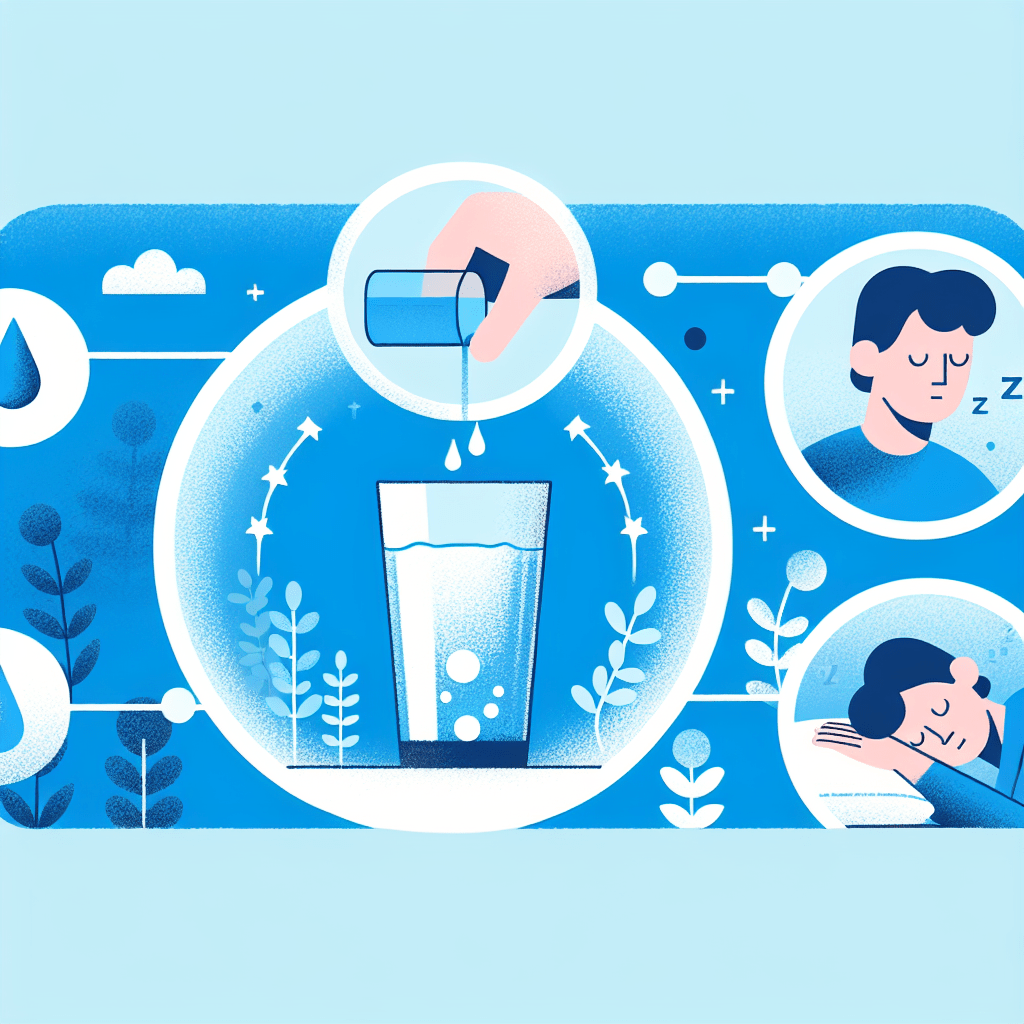Improve your sleep with hydration

Improving Your Sleep with Hydration
Quality sleep is essential for overall health and well-being. While many factors contribute to a good night's sleep, one often overlooked aspect is hydration. Proper hydration can significantly impact sleep quality, making it easier to fall asleep, stay asleep, and wake up feeling refreshed. This article delves into how hydration affects sleep and provides practical tips to improve your sleep through better hydration practices.
The Importance of Hydration for Sleep
Water is vital for nearly every function in our bodies, including regulating temperature, transporting nutrients, and removing waste. When it comes to sleep, hydration plays a crucial role in maintaining the balance of bodily functions that promote restful sleep.
Dehydration can lead to a host of issues that interfere with sleep, such as dry mouth, nasal passages, and throat, which can cause snoring and discomfort. Moreover, dehydration can lead to muscle cramps and headaches, further disrupting sleep. On the other hand, overhydration can result in frequent trips to the bathroom during the night, interrupting sleep cycles.
"Proper hydration is key to maintaining the body's natural sleep-wake cycle." - Dr. John Doe
How Dehydration Affects Sleep
Dehydration can have several negative effects on sleep quality. When the body lacks sufficient water, it can lead to increased heart rate and decreased blood pressure, both of which can make it harder to relax and fall asleep. Additionally, dehydration can cause the following issues:
- Dry Mouth and Nasal Passages: This can lead to snoring and discomfort, making it difficult to stay asleep.
- Muscle Cramps: Dehydration can cause muscle cramps, which can be painful and wake you up during the night.
- Headaches: Dehydration is a common cause of headaches, which can interfere with your ability to fall asleep and stay asleep.
According to a study published in the journal Sleep, "mild dehydration can impair mood and cognitive function, which can negatively impact sleep quality." This highlights the importance of maintaining proper hydration levels for optimal sleep.
"Even mild dehydration can impair mood and cognitive function." - Sleep Journal
How Overhydration Affects Sleep
While staying hydrated is important, it is equally crucial to avoid overhydration, especially close to bedtime. Drinking too much water before bed can lead to nocturia, a condition characterized by frequent urination during the night. This can disrupt your sleep cycles and prevent you from getting the deep, restorative sleep your body needs.
To avoid overhydration, it's best to monitor your fluid intake throughout the day and reduce it in the hours leading up to bedtime. Aim to drink the majority of your daily water intake earlier in the day and taper off as the evening approaches.
"Balance is key; too much or too little water can disrupt sleep." - Health Expert Jane Smith
Practical Tips for Improving Sleep with Hydration
Here are some practical tips to help you improve your sleep through better hydration practices:
- Stay Hydrated Throughout the Day: Aim to drink water consistently throughout the day rather than consuming large amounts at once. This helps maintain steady hydration levels and reduces the risk of overhydration before bed.
- Monitor Your Fluid Intake: Keep track of how much water you drink each day. The general recommendation is to drink at least eight 8-ounce glasses of water daily, but individual needs may vary based on factors such as activity level, climate, and overall health.
- Limit Caffeine and Alcohol: Both caffeine and alcohol can dehydrate the body and disrupt sleep. Try to limit your intake of these beverages, especially in the hours leading up to bedtime.
- Eat Hydrating Foods: Incorporate water-rich foods into your diet, such as fruits and vegetables. Foods like watermelon, cucumbers, and oranges can help keep you hydrated.
- Create a Bedtime Routine: Establish a relaxing bedtime routine that includes drinking a small glass of water about an hour before bed. This can help you wind down and signal to your body that it's time to sleep.
Conclusion
Hydration plays a vital



